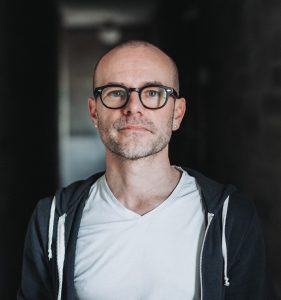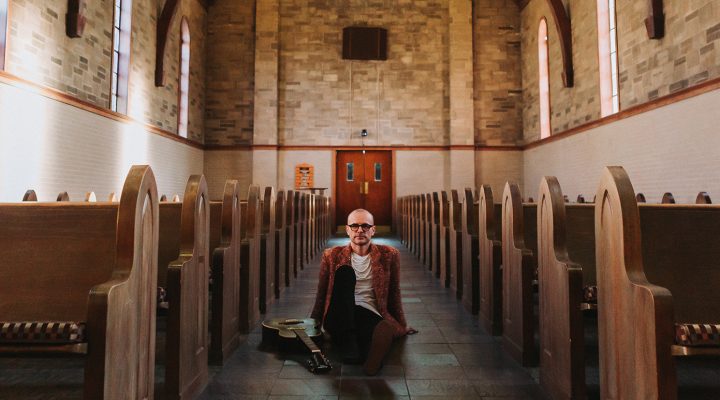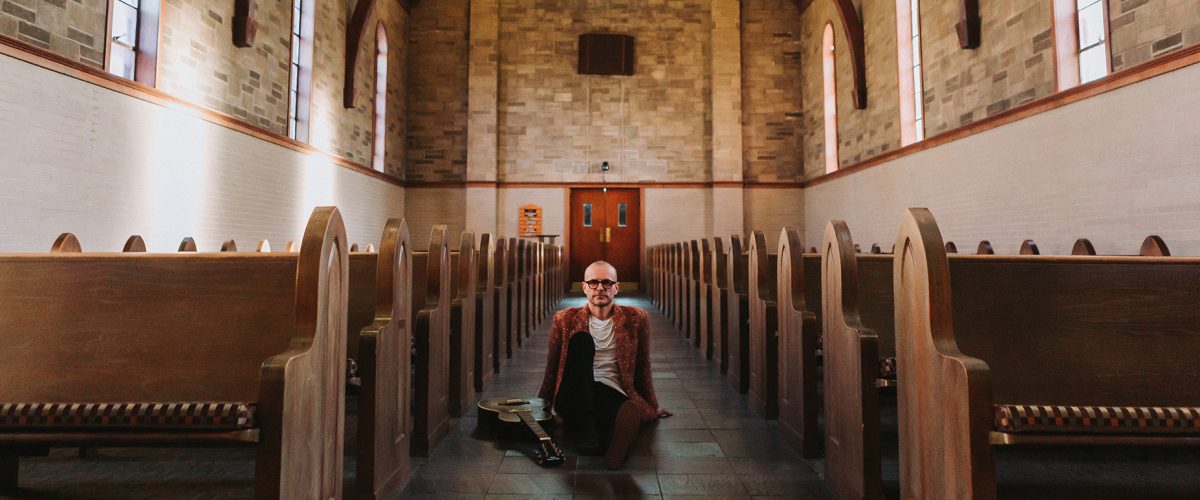Thirty-two years ago, when Derek Webb emerged on the national scene with the contemporary Christian music group Caedmon’s Call, he could not have imagined how much his life would veer into uncharted territory.
That’s not because of fame but because he has been on a public journey from evangelical Christian to self-described “agnostic,” while still living in the world of Christian music.
It’s not that he denies the Christian faith but that he admits his own uncertainty. He draws a sharp distinction between the words “agnostic” and “atheist.” And he is not an atheist.
“Everybody does love a category, and categories for me on the whole have proven very unhelpful, especially as a public person,” he explained. “A category is an attempt to give a short answer to a question for which there’s maybe no short answer, and so I don’t love doing it. But … the word ‘agnostic’ is about knowledge and the word ‘atheist’ is about belief.
“I am an agnostic probably by the strictest definition. But I think everybody who is not ready to present me with evidence that can be tested by the scientific method and is not ready to prove that evangelical Christianity is true and is real and that God is real, that Jesus is the Son of God — unless somebody is ready with actual evidence and can prove that it’s true — I think Christianity by definition actually must be taken on faith. If you believe evangelical Christianity is a religion that must be taken on faith, then you are to prepare yourselves: everybody is an agnostic evangelical Christian. Just because I believe we can’t know doesn’t mean I don’t think it could be true.”
“Everybody is an agnostic evangelical Christian. Just because I believe we can’t know doesn’t mean I don’t think it could be true.”
Some call this process of faith adjustment “deconstruction,” but even that word doesn’t capture Webb’s life experience or beliefs.
“For people who are unfamiliar maybe with the word ‘deconstruction,’ what I like to say is you have a word that you use, a category, or a way to simplify a complicated idea that it winds up in a category like the word ‘deconstruction,’ (and) if you ask 10 people to define it, you get 10 different definitions immediately. I think people need to do the hard work and find words that describe them. The word ‘deconstruction,’ has so many definitions.”
Thus he’s more comfortable with the word “uncertainty” when it comes to defining his own journey.
“In order to put a few more words on it, in order to make sure I’m being very clear, when I use a shorthand word like ‘deconstruction,’ I’m putting air quotes around that,” he said. “What I mean is like a regular audit of all of my language and opinions about invisible reality or a regular audit of my language and opinions about invisible things, things you cannot see, like God and unknowable things, or things you cannot know like the future. I have found when it comes to things like that, I have settled to where I think ‘uncertainty’ is necessary.
“Uncertainty is a good way to go. And I think uncertainty is not the enemy of faith. I think uncertainty is the prerequisite of faith. In order to have a spiritual pursuit that is intellectually honest, that can bear the weight of real-life crisis and grief, I think you must remain uncertain about things you cannot know, like the future and things you cannot see, like God. I don’t think there’s any other choice.”
That kind of uncertainty doesn’t detract from the potential power of a person’s beliefs, he said. “If anything, I think it contributes to it. The process of my deconstruction, my audit of language and opinions about invisible reality, is wrapped up in my work as a musician and as a songwriter.”
“Uncertainty is not the enemy of faith. I think uncertainty is the prerequisite of faith.”
How he got here has something to do with grief.
Webb is divorced from to singer Sarah McCracken, one of several life events that led him to question his own certainties.
“The thing that finally maybe gave me not permission but just an opportunity to take a more critical look at least my practice of spirituality and what I was believing about God and spirituality was failure and grief — which is usually what can cause that sort of thing,” he said. “Because when everything is good, you don’t learn anything from success. No one ever learns anything from success, hardly anything, other than learning to hear more expectation on yourself for more success.
“When you fail, and if you’re healthy, it at least gives you the opportunity to slow down and have a look at what happened. Why did that fail? Maybe 10 years ago, or a little more, I went through some real personal failure. I went through a divorce.
“When you are in a boat, you are in no way incentivized to question whether that boat can hold you and protect you and keep you safe while you’re in it. If anything, you’re incentivized not to think about the boat, especially if the waves are rough. You have to believe if it’s the only thing you have that it can hold you, And it’s not until you sometimes hit a wave so big that you’re thrown from the boat that you have the opportunity in the slow-motion experience of life to look at it and decide if you think it can hold you and it can bear your weight.
“It wasn’t until I hit some real personal failure that I had the opportunity to have a look at my boat. And in doing so I just honestly was not persuaded that this thing I had practiced for a long time now that it was showtime could really bear my weight. Could it hold me? Did it provide comfort? Did it provide answers or comfort to grief? Did it even seem necessary for me when all was stripped away? I have to be honest, it just didn’t.”

Derek Webb
That’s not to cast blame on God, Jesus or the church, he said.
“Neither the practice nor the institution nor the ideas nor the community seemed to really provide any comfort. It didn’t really seem necessary to me to even be comforted. But I’ll also say this, I don’t think that is necessarily the fault of God, Jesus, the church or Christian evangelical belief. I don’t think any of those things necessarily failed me.”
Amid this uncertainty, Webb continues to sing and has worked part-time at a church that still sees him as part of the Christian community.
He just returned from a tour with Caedmon’s Call, which released a new album.
“I was actively doing work in that band for about 10 years, and then at the beginning of the 2000s is when I split off and started making solo music,” he said. “The active music career I’m in now and have been is my solo career. And yet Caedmon’s Call as a band is very much like ‘Hotel California’ in that you check out whenever you’d like but you never really leave, because these are people who I grew up with.
“This was my college experience. I didn’t go to college. Instead, I joined this band and was in it for 10 years with these people. And so they’re like my family. Our personalities, our humor is all wrapped up with each other. A lot of our kind of core spiritual beliefs are as well, I think.
“Because we were forming all of that, we were going through that formation together at that time in very close quarters, and under pressure together. Caedmon’s is a thing that seems to always come back up. We love each other and we’re like family. And so we do always find, you know, ways to wind up back together hanging out or doing work together.”
Doing that music full time would be challenging in his present situation, he admitted. “If it was my full-time work and it was still an active touring band, it would be extremely different. It’d be very complicated. Even just the differences in our personal lives — the way we see the world, or at least the way we operate in the world, would be complicated if we were doing this every single day together.”
But when the group reassembles, it’s like coming home, he added.
“We come back together every handful of years and do something, and it works the way it does because we’re family and these are friends I’ve had for decades. As a result, we have tunnels dug under everything. Under all the changes we’ve been through, under all of the reputations of families, under the scale of megachurches, under everything, we have these tunnels dug: these relationships that we have and this history that we have together.”
Related articles:
What Sean Feucht meant for evil, Flamy Grant experienced as good
At the Dove Awards, Section 103 marched to a different beat


